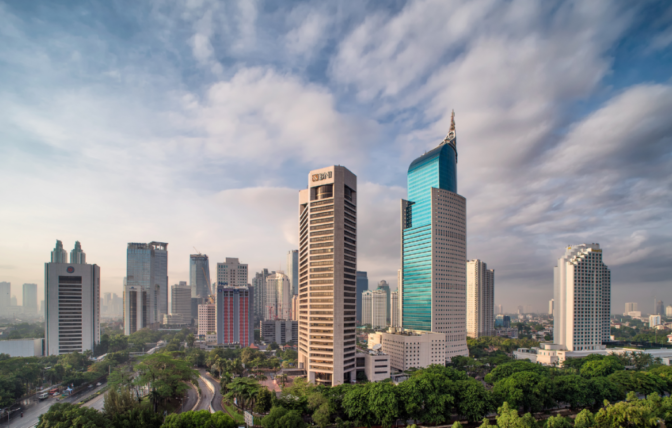
 "
"

 "
"

Indonesia’s Islamic Finance and Halal Sector: A Catalyst for Growth
As the solitary trillion-dollar nation in Southeast Asia and a prominent member of the G-20, Indonesia stands as a fertile ground for the expansion of Sharia-based financing and the thriving halal industry, encompassing domains such as food, tourism, fashion, and banking.
Dr. Ebi Junaedi, a scholar from the University of Indonesia, emphasized these prospects during the 6th installment of the Online Internship Program. The session spotlighted Indonesia’s role in the Sharia Economy and Halal Market and was part of a collaborative initiative between the Indonesian Embassy and Bahria University, aimed at nurturing mutual learning and bolstering ties between Indonesia and Pakistan.
Unveiling Indonesia’s Potential in the Global Arena
Ranked 14th in terms of land area, 4th in population, 16th in GDP, and 28th in export value—with a staggering USD 320 billion in exports last year—Indonesia houses the world’s most significant Muslim population and a burgeoning middle-income consumer base. Dr. Ebi Junaedi provided an insightful overview, highlighting that in 2022, Indonesia secured the 4th position among the leading indicators of the global Islamic Economy. Notably, it achieved the 6th rank in Islamic finance, 2nd in the Halal food sector, 3rd in modest fashion, and 9th in pharmaceutical and cosmetic categories.
A Promising Trajectory: Islamic Finance and Halal Industry
Optimism radiated from the speaker’s projection as he underscored Indonesia’s potential in transforming into a developed nation through the promising avenues of Islamic Finance and the Halal Industry. The nation maintains a commendable score in social capital, epitomizing the gains derived from social bonds, trust, collaboration, shared values, and norms within its society.
The Evolutionary Influence of Millennials, Gen-Z, and Social Media
Dr. Junaidi emphasized the profound impact of millennials, Gen-Z, and the digital landscape on Indonesia’s future halal market. Over 70% of Indonesians rely on social media to explore new halal food offerings, with the country ranking third globally, trailing only China and India, with a user count of 170 million as of January 2021. “Millennials and Gen-Z, constituting 55% of the total population, represent a substantial consumer base for Indonesia’s Islamic finance and halal industry,” highlighted the speaker.
Strategic Insights and Market Dynamics
During his presentation, Dr. Junaidi spotlighted Indonesia’s position in the global halal market—a USD 292 billion industry—where the nation stands at the 10th spot. The country’s prospects shine brightly, thanks to the robust growth of its halal sectors in processed foods and beverages, fashion and apparel, and pharmaceuticals and cosmetics, both domestically and internationally.
Navigating Challenges and Seizing Opportunities
In the realm of Islamic and Halal products, challenges persist, including certification expenses, international cooperation, reliance on imported raw materials, market access, and technological support. However, these challenges coexist with substantial domestic and export demand, underlining the dynamic landscape of Indonesia’s Islamic finance and halal industry.